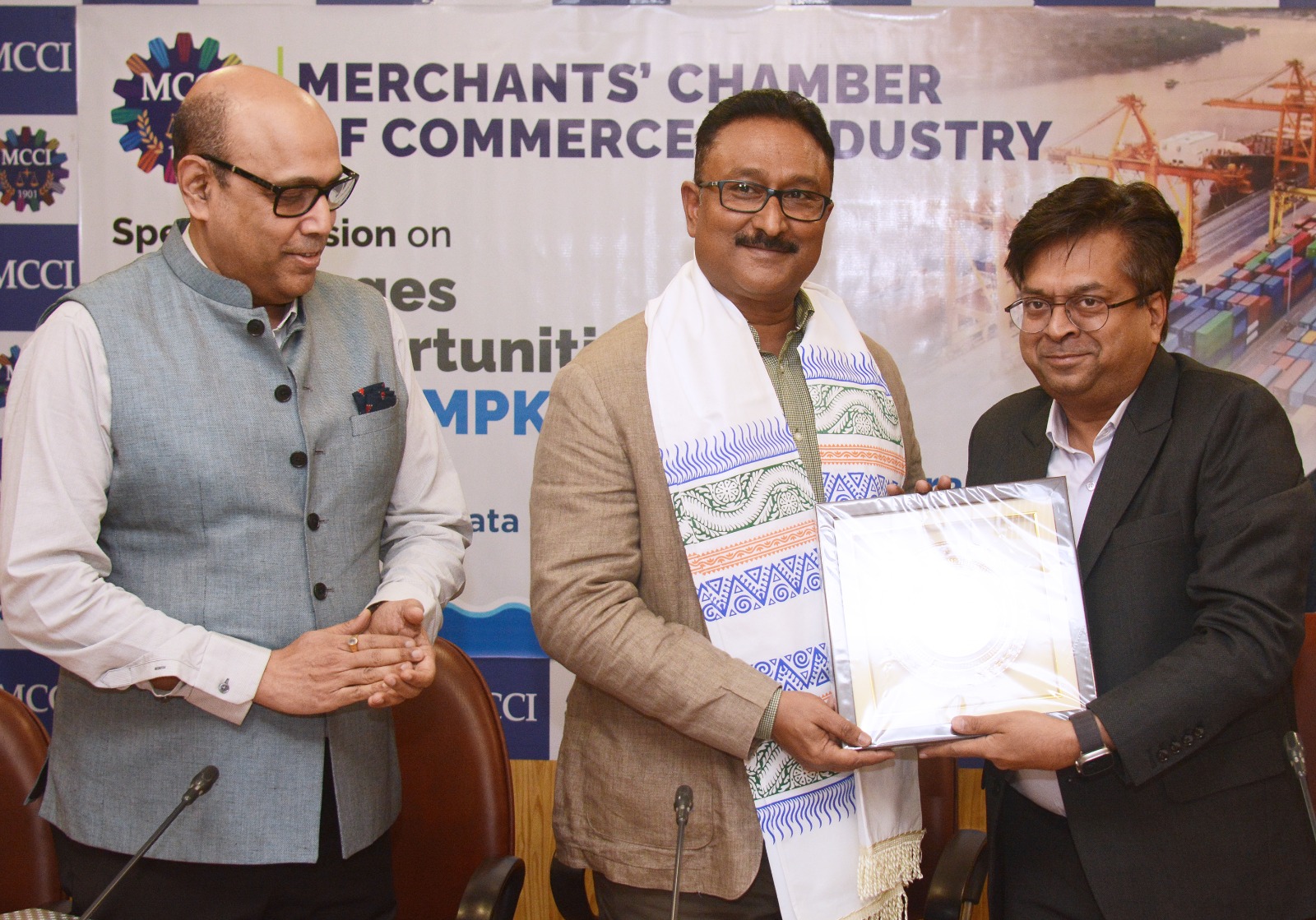Merchants’ Chamber of Commerce & Industry (MCCI) organised a Special Session with Shri Rathendra Raman, IRTS, Chairman, Syama Prasad Mookerjee Port, Kolkata on “Challenges and Opportunities for Trade at SMPK” on Friday, 8 August, 2025 at 4.30 pm at MCCI Conference Hall.
Shri Rathendra Raman in his address said that Kolkata port is a riverine port so draught will always be an issue. And as it is a city-based port so, evacuation will always be an issue. However, draught is being increased in both Kolkata and Haldia ports. Kolkata port has 87.5 million MT cargo capacity and 30 million MT is being added.
Shri Raman mention about Night Navigation which has started in Kolkata port. It will reduce vessel detention time. Floating Crane to handle dry bulk cargo is coming up in deep sea at Sagar Iceland.
He also highlighted that the turnaround time is expected to improve from 5 days to 4 days within 6 months to 1 year for Kolkata port. He informed that 8 mobile harbour cranes are coming to Kolkata port which will reduce time spend by ships at port.
Shri Raman said that lock gate is coming up in Kolkata & Haldia Port and ships can stay outside the lock gate.
While discussing on warehouse, Shri Raman mentioned that Waterfront Warehouse Project is integrated with the Sagarmala Project, aiming to enhance the port’s role in maritime trade and regional connectivity. The project involves developing infrastructure under a Landlord Model, with the government handling infrastructure development and private entities managing operations and maintenance.
Kolkata port has invested in vessel traffic management systems (VTMS) and automatic identification systems (AIS) to enhance vessel connectivity. Lastly, he pointed out that The Balagarh Project of Kolkata Port aims to decongest the Kolkata Dock System and boost trade. It involves constructing a new facility on Balagarh Island, about 85 km upstream from Kolkata’s main docks, to handle container and bulk cargo.
Shri Jhakka Prasad Acharya, Consul General of Nepal in Kolkata in his address said that Kolkata Port holds the promise of prosperity for Nepal-India trade. By addressing key bottlenecks and jointly embracing innovation, this port can become a true model of landlocked-land linked cooperation.
I reiterate Nepal’s deep appreciation for India’s continued goodwill and support. Let us work together- governments, port authorities, private sector, and development partners to make SMPK not only a port of transit but a port of trust and transformation.
Shri Amit Saraogi, President, MCCI delivering the Welcome Address said that the port sector, by virtue of being the backbone of India’s logistics ecosystem, facilitates over 90% of the country’s trade by volume. However, high logistics costs, estimated at 13-14% of India’s GDP compared to 8%-10% in developed economies, pose a significant hurdle.
In FY24, SMP Kolkata achieved a record-breaking cargo throughput of 66.44 million tonnes, a 13% increase from the previous year. These figures reflect SMP Kolkata’s ability to adapt and thrive amidst challenges, positioning it as a leader among India’s major ports.
SMP Kolkata, has played a pivotal role in shaping the maritime and logistics landscape of our nation, since its inception in 1870. With planned investment of Rs. 4,000 crores by 2030, to augment its cargo handling capacity to 130 million tonnes, SMP Kolkata is well poised to attain the vision enshrined in the National Gati Shakti plan.
The Session ended with a hearty Vote of Thanks by Shri Lavesh Poddar, Chairman, Council on Logistics, Transport & Shipping, MCCI.




